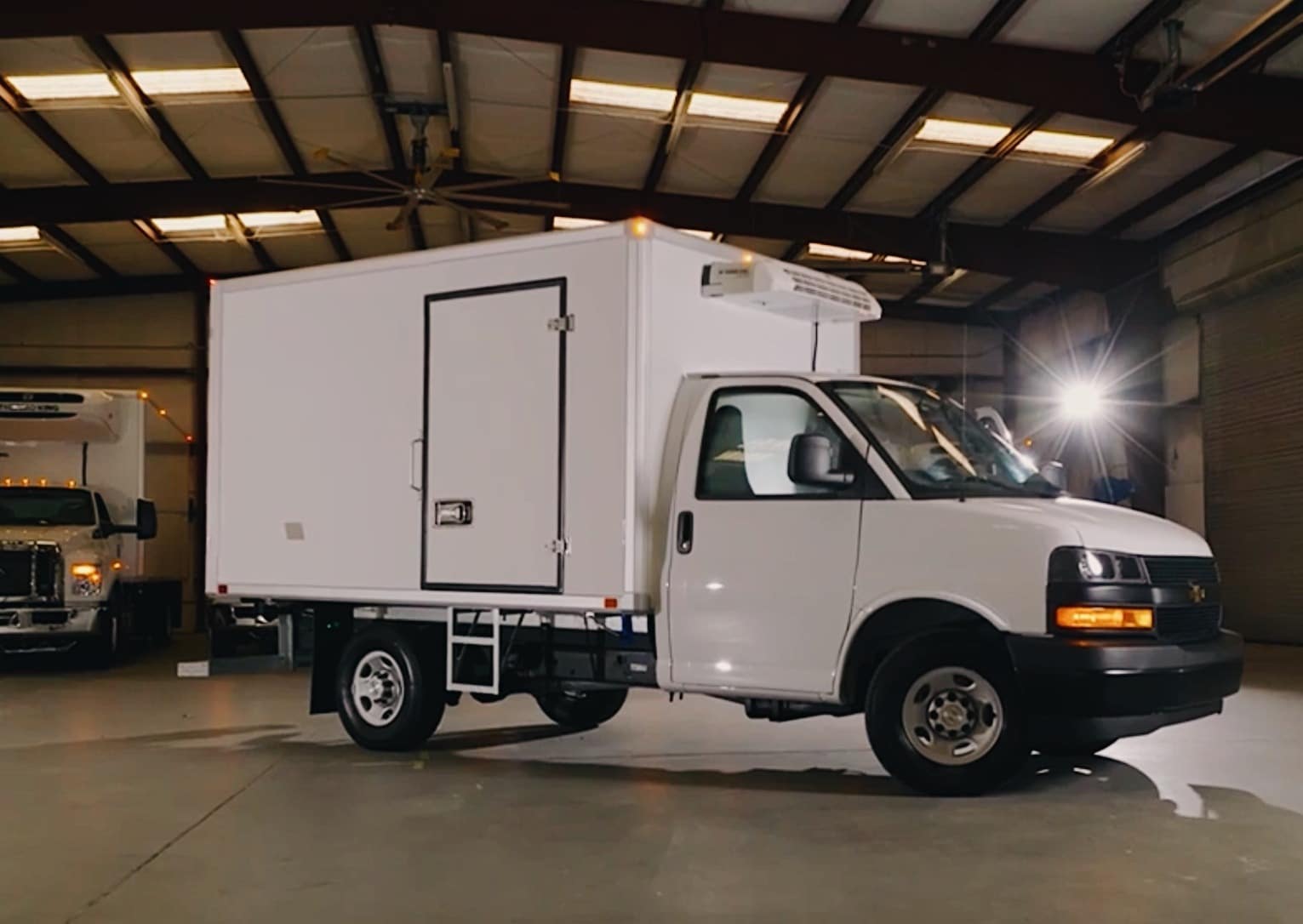Picking the Right Transport Refrigeration System for Your Fleet
Selecting a suitable transport refrigeration system for your fleet is a crucial decision that can significantly influence functional effectiveness and product integrity. It necessitates a comprehensive understanding of your specific refrigeration demands, consisting of temperature requirements and delivery timetables.
Comprehending Your Refrigeration Demands
When picking a transport refrigeration system, recognizing your certain refrigeration requirements is vital to making sure product top quality and conformity with industry standards. Numerous aspects have to be taken into consideration to establish one of the most ideal system for your procedure. These consist of the sort of products being delivered, their temperature demands, and the duration of transportation.
For subject to spoiling products, such as fresh fruit and vegetables or pharmaceuticals, accurate temperature control is crucial. Comprehending the temperature variety required for each and every product enables the selection of a system that can preserve those problems regularly. Furthermore, take into consideration the frequency of deliveries and the distance traveled; longer journeys might require systems with boosted insulation or backup power alternatives to avoid temperature variations.

Furthermore, the capability of the refrigeration unit need to line up with your tons dimension. By extensively analyzing these factors, you can make certain that your chosen transport refrigeration system successfully satisfies your functional requirements and maintains product stability.
Kinds Of Transportation Refrigeration Systems
Picking the ideal sort of transport refrigeration system is essential for ensuring the risk-free transportation of temperature-sensitive items. There are a number of systems readily available, each designed to meet specific needs and applications.
The most typical kinds include straight expansion (DX) systems, which make use of cooling agent to absorb warm and cool down the freight area properly. These systems are often favored for their performance and reduced initial costs. Another alternative is the central refrigeration system, which serves multiple compartments or vehicles from a solitary compressor device. This is particularly beneficial for bigger fleets requiring regular temperature control throughout different transport units.
In addition, there are self-supporting refrigeration systems that incorporate the compressor and evaporator in one package. When area is restricted, these units are suitable for smaller lorries or. For specialized applications, such as transporting perishables or pharmaceuticals, cryogenic refrigeration systems might be made use of, using liquid nitrogen or co2 to maintain ultra-low temperatures.
Lastly, hybrid refrigeration systems that combine electrical and diesel power are coming to be progressively prominent, offering adaptability in energy usage and lowering environmental effect. Comprehending these numerous types allows fleet operators to make enlightened choices tailored to their particular operational requirements.
Trick Attributes to Think About
Exactly how can one make certain that a transportation refrigeration system meets all operational needs? To achieve this, a number of essential attributes should be meticulously examined. Temperature control is crucial; systems ought to supply precise temperature settings to suit numerous products, ranging from frozen products to subject to spoiling things.
Power effectiveness is an additional important consideration, as it affects operational prices. Search for systems that make use of innovative modern technology, such as variable speed compressors, to enhance power use without jeopardizing efficiency.
One more function to evaluate is the dependability and sturdiness of the devices. Systems created from top notch products and created for durability against severe conditions will certainly minimize upkeep expenses and downtime.
Moreover, the convenience of upkeep and ease of access of elements can substantially affect operational performance (thermo king truck refrigeration units). Features like modular designs or remote surveillance capacities can streamline service procedures
Lastly, compatibility with existing fleet administration software program can boost tracking and reporting procedures. By concentrating on these essential functions, fleet drivers can ensure that their transport refrigeration systems not only fulfill present needs however additionally adjust to future requirements.

Budgeting for Refrigeration Solutions
Reviewing crucial functions of transportation refrigeration systems is only one part of making certain functional effectiveness; budgeting for refrigeration services is equally important. A well-structured spending plan not just incorporates the initial purchase price however also considers lasting functional costs, including energy usage, upkeep, and possible repair service requirements.
When establishing a budget plan, fleet supervisors must first evaluate the total expense of possession (TCO) This consists of not only the acquisition expenses but also ongoing expenditures connected to fuel performance and the toughness of the refrigeration systems. Choosing systems with higher energy performance ratings might produce substantial savings over time, mitigating upfront expenses.
Moreover, fleet drivers need to represent potential scalability. As services expand, the refrigeration needs may change, demanding upgrades or extra devices. Preparation for these future costs can stop economic stress.
Funding options can likewise play a crucial function in budgeting. Leasing, financings, or outright purchases each have unique monetary effects, and comprehending these can aid in making an informed choice. Eventually, a detailed spending plan that thinks about both future and prompt demands makes certain that transportation refrigeration systems add favorably to the total functional the original source effectiveness of the fleet.
Upkeep and Assistance Options
In the world of transport refrigeration systems, effective upkeep and assistance options are essential for making sure optimal efficiency and long life. Routine maintenance is vital to prevent malfunctions and preserve the stability of temperature-sensitive freight. It is advisable to establish a regular evaluation schedule with certified service technicians who can carry out essential checks and fixings on refrigeration systems.
Assistance options must include a robust solution agreement, covering both regular upkeep and emergency situation repair services. This makes sure that your fleet has access to prompt help, minimizing downtime and maintaining functional performance. Numerous suppliers supply comprehensive assistance bundles that consist of training for your staff, allowing them to do basic troubleshooting and maintenance tasks.
Moreover, utilizing remote monitoring innovation can boost your maintenance strategy - thermo king truck refrigeration. These systems supply real-time information on temperature level and performance, allowing for aggressive measures before issues escalate. Buying training and innovation not only boosts your fleet's dependability yet likewise expands the life expectancy of your refrigeration systems
Ultimately, click reference a calculated strategy to maintenance and assistance will certainly safeguard your financial investment and make sure that your transportation refrigeration systems run at peak effectiveness, supplying constant outcomes for your business.

Conclusion
To conclude, selecting the appropriate transport refrigeration system for a fleet requires a complete evaluation of particular refrigeration demands, system kinds, and vital features. Focusing on functional effectiveness, power usage, and upkeep considerations is essential for making sure integrity. Furthermore, mindful budgeting and planning for future scalability will contribute to the long-term success of the refrigeration method. Ultimately, an educated choice will certainly improve item integrity and enhance overall logistics operations within the fleet.
Choosing an appropriate transportation refrigeration system for your fleet is a critical choice that can significantly affect operational efficiency and item stability.When selecting a transportation refrigeration system, recognizing your certain refrigeration needs is paramount to making certain item quality and conformity with industry requirements. By completely assessing these factors, you can ensure that your chosen transportation refrigeration system efficiently fulfills your functional needs and keeps product integrity.
Eventually, a comprehensive spending plan that thinks about both prompt and future requirements guarantees that transport refrigeration systems add positively to the general functional efficiency of the fleet.
In conclusion, my sources picking the proper transportation refrigeration system for a fleet demands a detailed analysis of specific refrigeration demands, system types, and vital features.